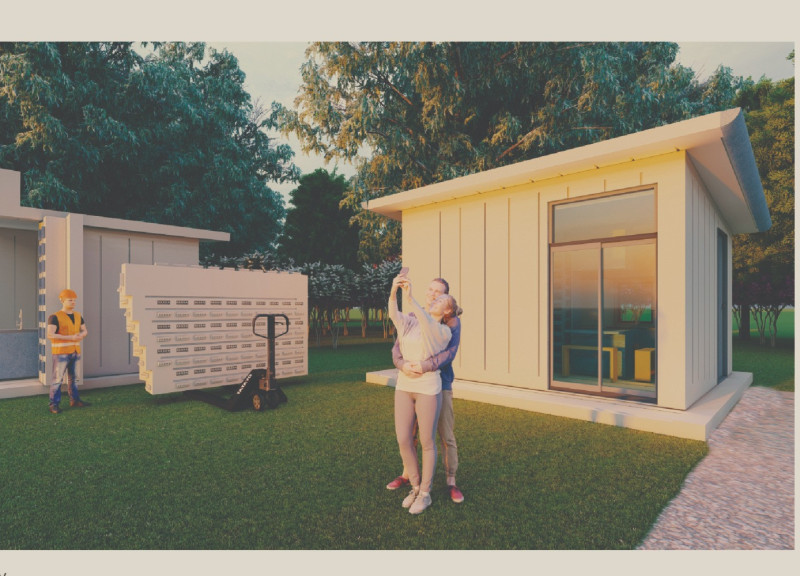5 key facts about this project
The "Plastic Housing" project addresses contemporary challenges in urban housing through the innovative use of recycled plastic materials. This architectural project provides affordable living solutions for young professionals, reflecting a significant shift toward sustainability and efficiency in design. The concept revolves around the modular nature of the housing units, allowing for rapid assembly and adaptability to various living needs.
Modular Design and Functionality The modular design of the "Plastic Housing" project stands out for its ability to create flexible living environments. Each unit consists of interlocking plastic panels, which serve as structural components, allowing residents to customize their living spaces according to personal preferences and daily activities. This flexibility not only optimizes space but also enhances the overall functionality of the units. The incorporation of features, such as folding furniture and rotating walls, further maximizes usability, accommodating both residential and communal living dynamics.
Sustainable Materiality A core feature of this project is the emphasis on sustainability through innovative materiality. The use of recycled plastic fundamentally transforms waste into valuable building material, reducing environmental impact. The plastic panels not only provide thermal insulation but also integrate essential utilities like electrical systems and solar energy solutions. The implementation of a rainwater collection tank and solar heaters reinforces the commitment to environmental stewardship while promoting energy efficiency. These attributes position the project as a model for future residential designs that prioritize both housing needs and ecological integrity.
Community-Centric Approach The "Plastic Housing" project represents more than just a collection of individual units; it embodies a vision for community living. By fostering shared resources and encouraging social connections among residents, the design promotes a sense of belonging and collaboration. This community-centric approach differentiates the project from conventional housing developments. The emphasis on modularity allows for the creation of adaptable neighborhoods that can evolve over time in response to changing community dynamics.
The "Plastic Housing" project serves as a framework for addressing urgent societal needs through thoughtful architectural design. For those interested in exploring this innovative approach, reviewing the architectural plans, sections, and overall designs will provide deeper insights into the project's unique features and implications for modern living.




















































